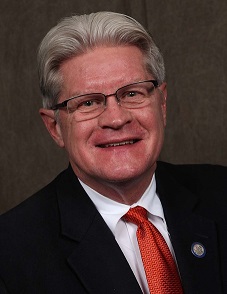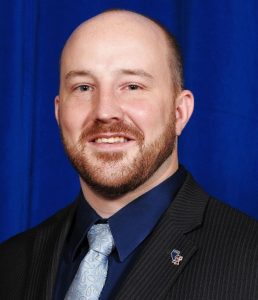
Ron Knecht
(Ron Knecht & Geoffrey Lawrence) – Ten years from now, you probably won’t remember Christopher Suprun.
Suprun was chosen by the Texas Republican Party for the Electoral College. For most of our nation’s history, this has been a procedural and honorary duty conferred upon loyal activists within the political parties when their presidential candidate carried their state.
But now Mr. Suprun is creating his 15 minutes of fame via a column in the New York Times in which he says he will not vote for Donald Trump and calls on other electors to follow suit. Of course, the Times’ far-left management and readership are thrilled as they thrash about for any way to invalidate election results they don’t like.

Geoffrey Lawrence
They claim the Electoral College was intended to be a deliberative body and should again become so. Since Trump’s election, our leftist friends have also discovered that the Constitution intentionally places strict limitations on the powers of the presidency. How convenient! We’ve warned continuously about the consolidation of power for decades, spanning both Republican and Democrat administrations, without previously finding a receptive audience from them.
It’s only partly true that the Electoral College was ever a deliberative body. Originally, voters didn’t vote directly for president, but chose from among a slate of electors who would subsequently meet together in their respective states and cast their own votes for president. This gave the electors some level of discretion in representing their constituents, but the entire Electoral College never actually met together and deliberated, since the Constitution specifically requires that electors meet within “their respective states.”
Further, the scope of agency granted to electors in the early republic was fundamentally different than today. In the early days, suffrage was restricted to property-owning males. The prevailing view of the founders was that taxpayers should control the direction of government in much the same way that stockholders directed corporations. Most taxes were based on property and each married couple was viewed as a single accounting unit, which was the basis of their rationale for restricting suffrage to property-owning men.
Coincidentally, this cohort tended to be more highly educated and informed than the general population. Similarly, the allegiances and affiliations of prospective electors were widely known among this elite group. So when voters chose electors, they generally knew with whom they were aligned.
It’s fortunate that we now vote directly for president, because it would be difficult for voters to know the personal affiliations of prospective electors in a nation nearly 100 times as large and with universal suffrage. That’s why electors are now chosen directly by the parties, making their affiliations unquestioned.
But the change in format also implies a change in the scope of agency granted to the electors. And this is the real hang-up for those now trying to subvert this year’s election results.
Agency is a centuries-old field of law that codifies the legal rights and obligations of parties to a principal-agent relationship or third parties transacting with an agent.
Most of us have been agents in some capacity. As employees, we are agents of the firm we work for, but we are only permitted to create obligations on the firm insomuch as we have been given authority to do so. Authority to bind the principal can be express or implied, but this determination is governed by the context, history and commonly observed business practices in a particular industry. Further, we also must follow the direct orders of those we represent, or they may rightfully fire us and end the agency.
Considering the political history, the scope of agency given to presidential electors no longer includes discretionary powers to vote for a candidate of their personal choice. As the collective principal, voters now expressly confirm their desire by directly choosing a specific candidate they intend the elector to support.
If Mr. Suprun were to exercise such wanton behavior in a business setting, his employer might legally repudiate his actions and he’d be personally liable for their consequences.
We don’t believe in subverting elections, even when we dislike the outcome. And we certainly disdain anyone who abuses their agency to support such an effort.
We look forward to Mr. Suprun and his enablers disappearing in history’s rear-view mirror.
Ron Knecht is Nevada’s State Controller. Geoffrey Lawrence is Nevada’s Assistant State Controller.


Facebook
Twitter
Pinterest
RSS